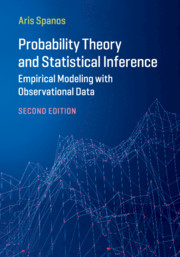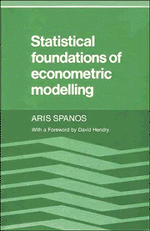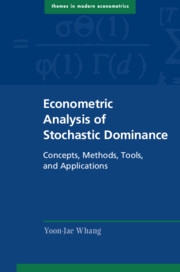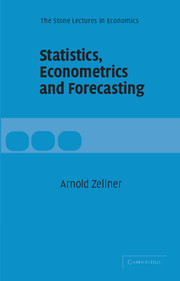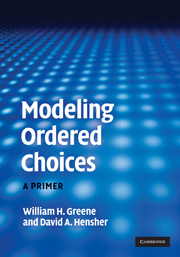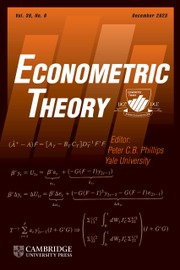Probability Theory and Statistical Inference
Empirical Modeling with Observational Data
2nd Edition
£51.99
- Author: Aris Spanos, Virginia Polytechnic Institute and State University
- Date Published: September 2019
- availability: In stock
- format: Paperback
- isbn: 9781316636374
£
51.99
Paperback
-
Doubt over the trustworthiness of published empirical results is not unwarranted and is often a result of statistical mis-specification: invalid probabilistic assumptions imposed on data. Now in its second edition, this bestselling textbook offers a comprehensive course in empirical research methods, teaching the probabilistic and statistical foundations that enable the specification and validation of statistical models, providing the basis for an informed implementation of statistical procedure to secure the trustworthiness of evidence. Each chapter has been thoroughly updated, accounting for developments in the field and the author's own research. The comprehensive scope of the textbook has been expanded by the addition of a new chapter on the Linear Regression and related statistical models. This new edition is now more accessible to students of disciplines beyond economics and includes more pedagogical features, with an increased number of examples as well as review questions and exercises at the end of each chapter.
Read more- Addresses the current concerns surrounding the untrustworthiness of evidence stemming from an uninformed recipe-like implementation of statistical procedures
- Offers a seamless integration of probability theory and statistical inference with a view to elucidate the interplay between deduction and induction when learning from data using statistical procedures
- Proposes a coherent account of frequentist testing that refines and extends the original Fisher and Neyman–Pearson framing by articulating an evidential interpretation of the p-values and accept/reject results that addresses several fallacies, abuses and misinterpretations bedevilling statistical testing since the 1940s
Customer reviews
Not yet reviewed
Be the first to review
Review was not posted due to profanity
×Product details
- Edition: 2nd Edition
- Date Published: September 2019
- format: Paperback
- isbn: 9781316636374
- length: 782 pages
- dimensions: 246 x 174 x 35 mm
- weight: 1.55kg
- contains: 281 b/w illus. 171 tables
- availability: In stock
Table of Contents
1. An introduction to empirical modeling
2. Probability theory as a modeling framework
3. The concept of a probability model
4. A simple statistical model
5. Chance regularities and probabilistic concepts
6. Statistical models and dependence
7. Regression models
8. Introduction to stochastic processes
9. Limit theorems in probability
10. From probability theory to statistical inference
11. Estimation I: properties of estimators
12. Estimation II: methods of estimation
13. Hypothesis testing
14. Linear regression and related models
15. Mis-specification (M-S) testing.
Sorry, this resource is locked
Please register or sign in to request access. If you are having problems accessing these resources please email [email protected]
Register Sign in» Proceed
You are now leaving the Cambridge University Press website. Your eBook purchase and download will be completed by our partner www.ebooks.com. Please see the permission section of the www.ebooks.com catalogue page for details of the print & copy limits on our eBooks.
Continue ×Are you sure you want to delete your account?
This cannot be undone.
Thank you for your feedback which will help us improve our service.
If you requested a response, we will make sure to get back to you shortly.
×
